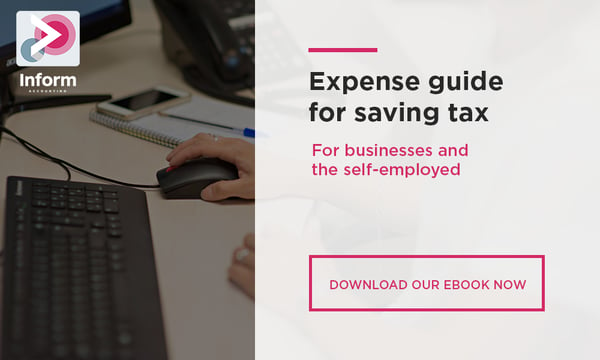BLOG COMPANY TAXES, EXPENSES & RATES
Registering with the Tax Authorities
A significant task for the new business owner is ensuring that the business is properly complying with the extensive tax and information filing requirements imposed by the various authorities.
Problems and penalties could arise if the new business is not registered with the appropriate tax authorities in a timely fashion. While this blog is not intended to be an all-inclusive list of filing requirements, it summarises some of the more prominent requirements common to most businesses.
HMRC is moving towards electronic forms and notifications via the internet. Paper forms are still required in some instances. In the following section we provide links to both downloadable versions of forms and the web links to apply online for various services.
H M Revenue & Customs
You must give HM Revenue and Customs (HMRC) specific information about your company within 3 months of starting up in business. You may get a penalty if you don’t.
You can do this online once you’ve got your company’s Unique Taxpayer Reference (UTR):
https://www.gov.uk/limited-company-formation/set-up-your-company-for-corporation-tax
HMRC will use this information to work out when your company must pay Corporation Tax.
You can also register online with HMRC to notify self-employment using form CWF1:
You need to register by 5 October following the end of the tax year you need to send a tax return for. If you’re late, you won’t get a penalty as long as you pay your Self-Assessment bill in full by the deadline.
H M Revenue & Customs – NI Contributions Office
Depending on the level of profit, sole traders and partners have a liability to Class 2 NIC at a weekly level of £3.45 (where annual earnings are £12,570 or more for 2023/24). These contributions are collected with income tax and Class 4 national insurance.
H M Revenue & Customs - VAT
You need to consider if it is beneficial to be VAT registered from the outset. The pros and cons are discussed in Chapter 4. If you are registering for VAT, form VAT 1 needs completing, and if you are a partnership, form VAT 2 needs to be completed giving details of all the partners.
Information about VAT 1 and VAT 2 (and other VAT forms) can be found at:
https://www.gov.uk/government/collections/vat-forms
To register online go to https://www.gov.uk/register-for-vat/how-register-for-vat
More information can be found at the HMRC website: https://www.gov.uk/vat-returns
Please contact us if you need any help.
Making Tax Digital (MTD)
From 1 April 2022 the Government now requires all VAT registered businesses to keep their records in a digital format and submit their VAT information to HMRC quarterly as part of the “Making Tax Digital” project.
This means that such businesses will need to keep their accounting records in a digital format that links to the HMRC computer system. VAT guide 700/22 sets out the rules in detail.
We can help you choose a suitable computerised accounting system for your business that satisfies the digital accounting rules.
Under the MTD for VAT legislation there should be digital links between different accounting software packages where different parts of the business or group use different software.
Self-employed individuals and landlords with gross annual business or property income above £50,000 will need to follow the rules for MTD for Income Tax for the 2026/27 Tax Year, with those with business or property income over £30,000 following in 2027/28. The start date for MTD for partnerships, LLPs or companies has yet to be confirmed.
There are many ways that we can help you with MTD:
-
We can assist you in registering for VAT online.
-
We can act as your agent and file VAT returns online with you providing us with the figures to be entered.
-
We can help you implement online filing through software.
-
We can provide you with MTD compliant accounting software with integrated online filing so you can easily calculate and file the figures.
Tax Calendar
The following summarises some of the more significant filing dates for a company using a calendar year end. Many of these requirements also apply to partnerships and sole traders. Naturally, if a year-end other than 31 December is used, some of these dates will vary.
|
DATE |
RETURN |
|
Annual Events |
|
|
19 April |
Final RTI Submission due |
|
6 July |
Submission of form P11D reporting benefits in kind |
|
19 July |
Payment of Class 1A NIC |
|
1 October |
Payment of corporation tax for accounts prepared for the calendar year (9 months and 1 day after the end of the accounting period) |
|
November/December |
Year-end tax planning |
|
31 December |
Submission of corporation tax return for accounts prepared for the calendar year (12 months after the end of the accounting period) |
|
Quarterly Events |
|
|
14 April |
Forms CT61 to be submitted reporting tax deducted/received on interest payments |
|
14 July |
|
|
14 October |
|
|
14 January |
|
|
Quarterly |
VAT returns (although these can be monthly or annually) |
|
Monthly Events |
|
|
19th |
Payment of payroll taxes (under certain circumstances – quarterly) |
Need help?
Whether you’re a new business or have been established for a while, we can help make sure your business is registered for all the relevant taxes with HMRC.
Get in touch with us to find out how we can help.




.jpg?width=1500&height=1000&name=amy-hirschi-K0c8ko3e6AA-unsplash-(5).jpg)

